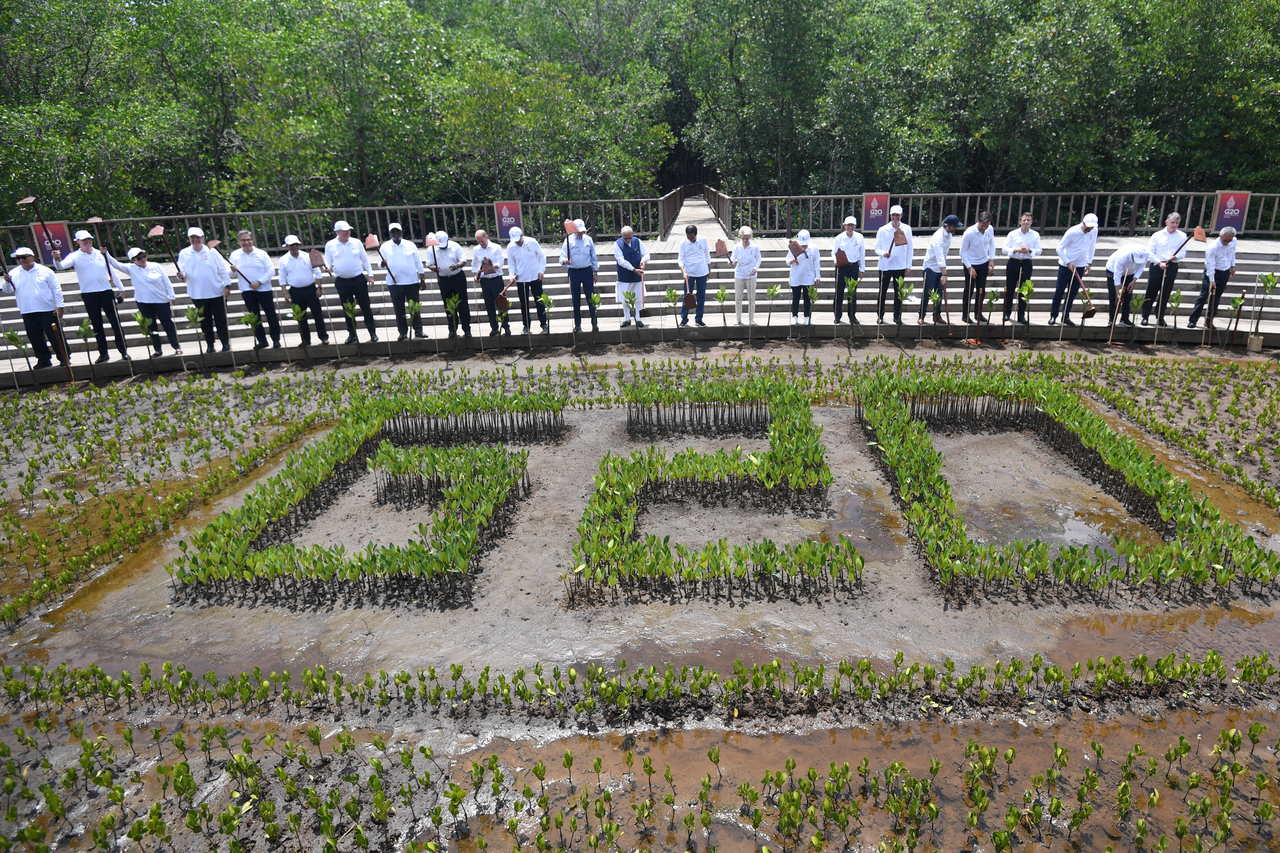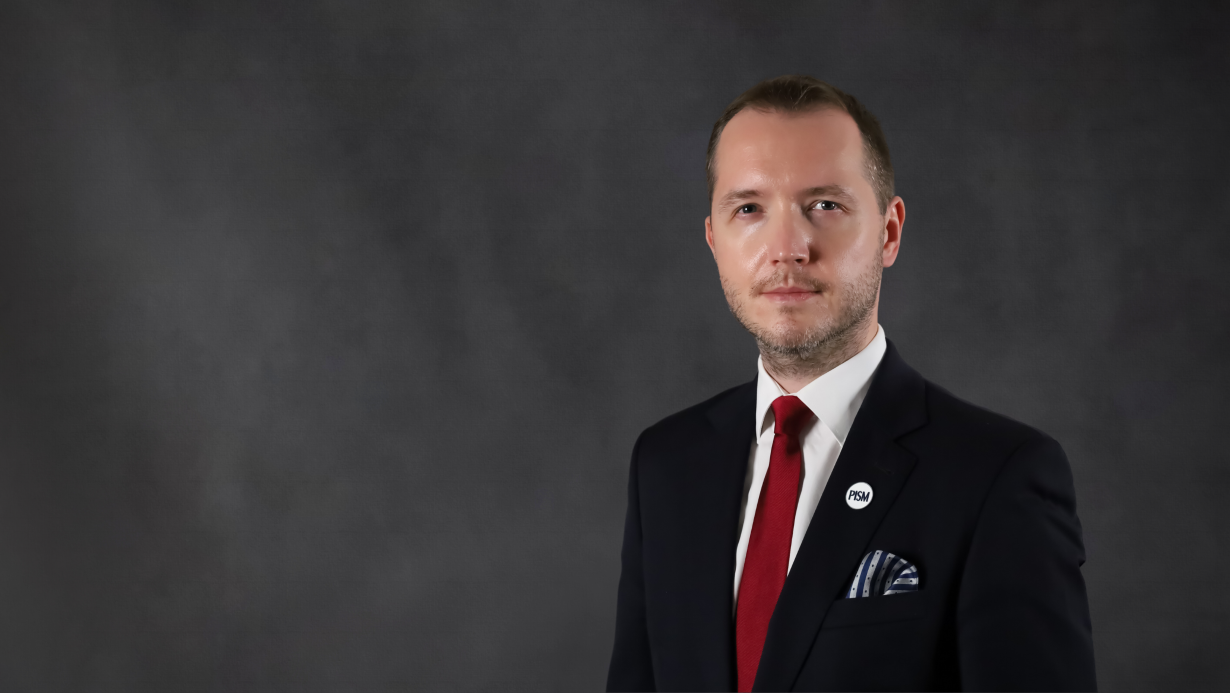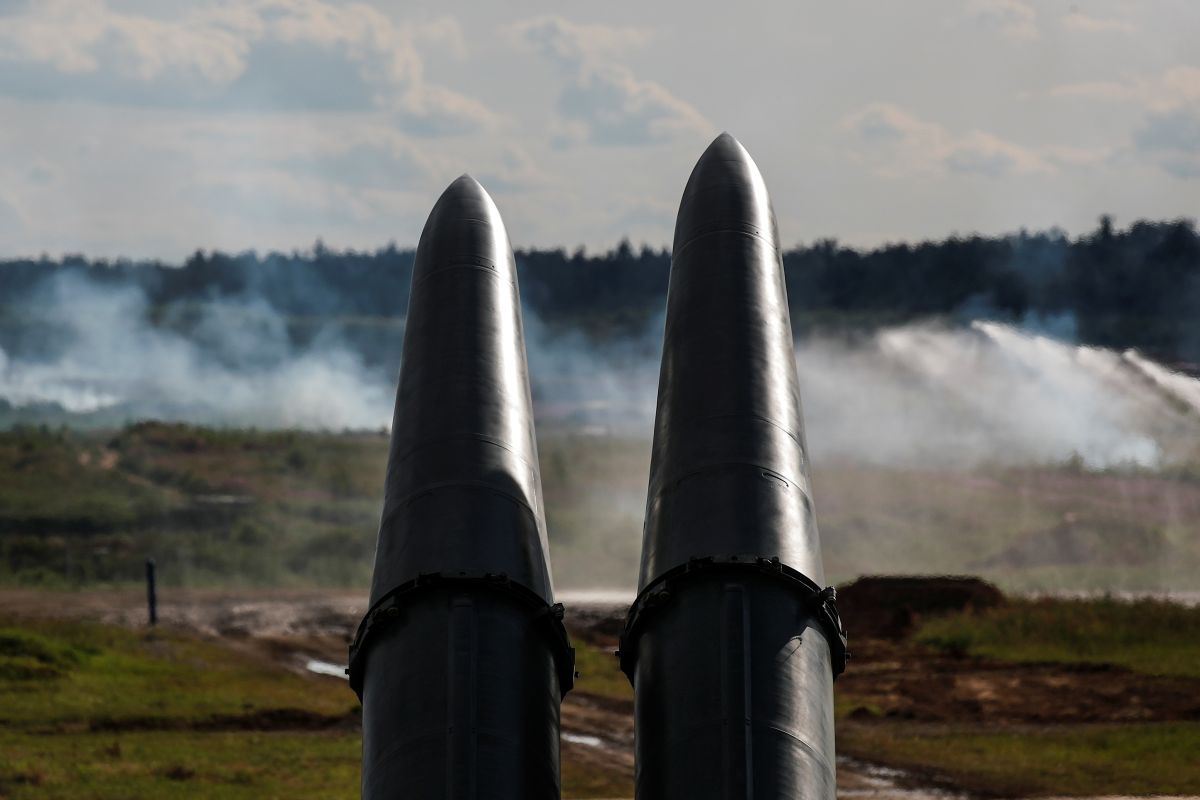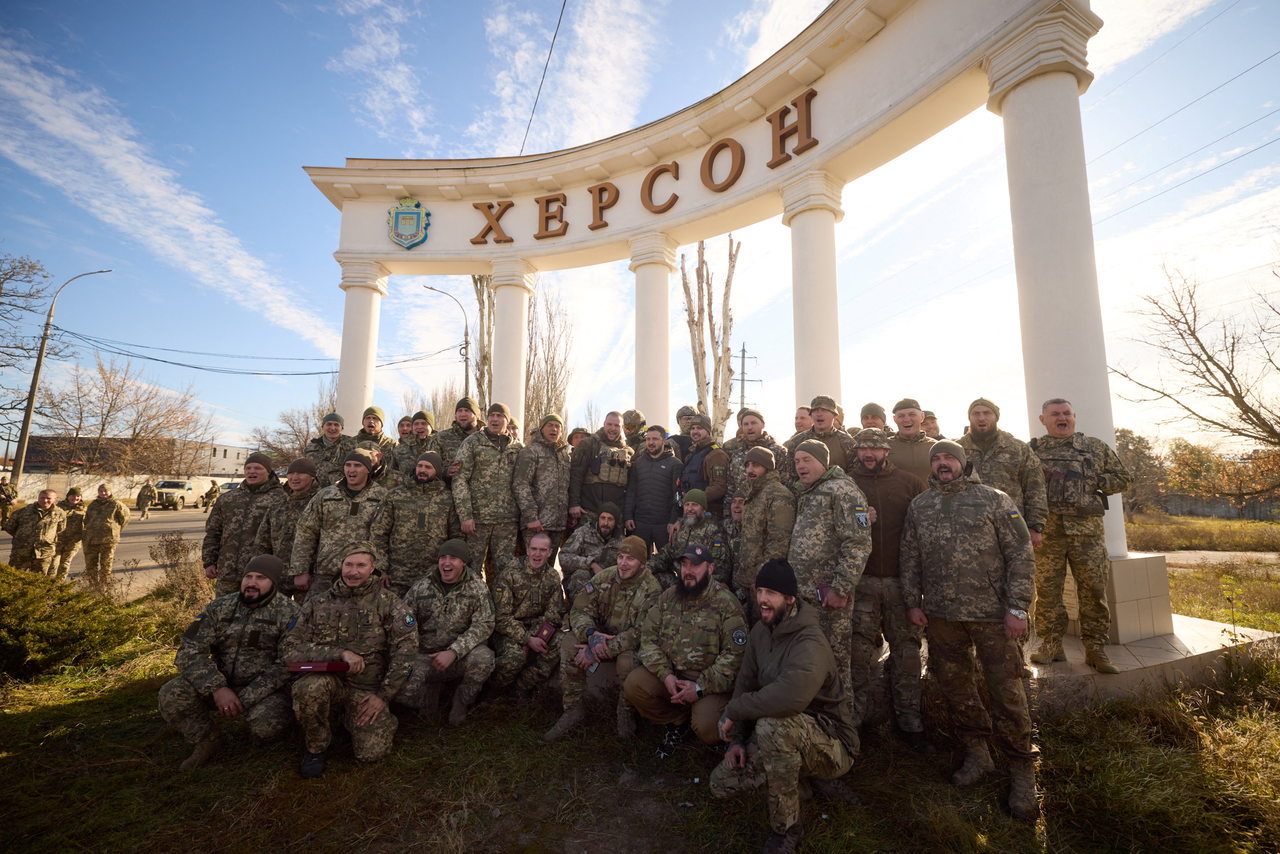Leaders Criticise the War in Ukraine and Pledge to Strengthen the Global Economy
The main topic of the G20 leaders’ summit in Indonesia on 15-16 November was the war in Ukraine and its negative effects on the world economy. Most countries condemned Russia’s aggression against its neighbour, although differences persist among members of the group in this regard. The G20 also announced actions to curb inflation along with supporting groups most affected by the food crisis and taking into account the interests of developing countries.
 G20 MEDIA CENTER /Reuters/ FORUM
G20 MEDIA CENTER /Reuters/ FORUM
What is the summit context?
The meeting crowning Indonesia’s presidency of the G20 took place at the same time as Russia (one of the group’s members) was experiencing defeats in the war in Ukraine, including Russian forces’ withdrawal from Kherson, and massive Russian attacks on Ukrainian civilian targets and critical infrastructure. The energy and food crises stemming in part from the Russian aggression, along with the uncertainty about the transport of Ukrainian grain across the Black Sea (illegally controlled by Russia), is contributing to record global inflation. The rising costs of living and tightening monetary policy by numerous central banks along with the persistent effects of the COVID-19 pandemic (e.g., the continuation of the “zero-COVID” policy in China) are resulting in a weakening outlook for global economic growth. According to the IMF’s forecast from October, growth will slow from 6% in 2021 to 3.2% in this year and 2.7% in 2023. The G20 summit was held during the COP27 climate conference in Egypt, though the related issues of sustainable development were also to be the subject of talks in Bali.
How did the G20 deal with the Russian aggression against Ukraine?
Russia’s aggressive actions against Ukraine have been met with criticism within the G20 with some limitations. In the final communiqué from the summit, “most members” condemned the “war in Ukraine”, emphasising the related suffering of the civilian population and the damage to the world economy. In the document, however, the group underlined that there are also “different views on the assessment of the situation and sanctions” within it. These statements indicate that the criticism of the aggression was forced over Russia’s objection, and probably of several other countries. In the communiqué, the leaders indicated that individual members of the group maintained their positions expressed in other forums, such as at the UN, including in the resolution of the General Assembly of 2 March this year when, among others, China and India abstained from the vote condemning the Russian invasion. An important part of the first day of the summit was the speech by the President of Ukraine Volodymyr Zelensky, who presented a 10-point plan for ending the war, including the withdrawal of Russian troops from Ukraine. G20 members also deemed “the use or threat of use of nuclear weapons” as “inadmissible”, a clear reference to Russia’s nuclear blackmail. In addition, on the second day of the summit, an extraordinary meeting of G7 and NATO countries was held concerning the explosion in eastern Poland on 15 November. Minister of Foreign Affairs Sergey Lavrov, representing Russia in place of Vladimir Putin, accused the summit participants of “politicization” of the event and again groundlessly accused NATO of being responsible for the outbreak of the war.
What are the other results of the meeting?
The group’s decisions in other areas, such as the economy and climate change, are very general. As regards the fight against inflation, the leaders pointed to the efforts to coordinate actions within the framework of fiscal and monetary policy. This is to limit disruptions in the global economy caused by state interventions, including exchange rate fluctuations and the outflow of capital from emerging markets. In addition, leaders agreed to use “temporary and targeted” support for those groups most affected by price increases, including as a result of the food crisis. The G20 supported the continuation of the agreement on grain exports that allows Ukrainian food to be transported across the Black Sea (its duration was extended after the summit). The group also expressed concern about the growing problem of indebtedness, and called on creditors for greater transparency and a spread of debt-management obligations, which may refer to China’s non-transparent policy in this regard. G20 members have also committed to a flexible macroeconomic policy, strengthening the resilience of global supply chains, increasing infrastructure investments, supporting the digital transition, implementing an international corporate tax, and strengthening global governance in the context of future pandemics. In many areas, for example, financial support of developed countries for adaptation to climate change, existing commitments were repeated. Support for the implementation of the Paris Agreement may, on the other hand, support talks as part of the ongoing COP27.
What happened on the sidelines of the summit?
The G20 summit was an opportunity for numerous bilateral high-level talks, the most anticipated of which was the meeting of the leaders of the U.S. and China. That meeting may contribute to easing the tensions in relations between the two countries and maintaining permanent communication channels. U.S. President Joe Biden also met with, among others, Prime Minister of India Narendra Modi and the UK’s new prime minister, Rishi Sunak, which reaffirmed the strong American-British alliance. In addition, the United States, along with Japan and other partners, pledged to raise $20 billion to support Indonesia’s energy transition. In turn, the leader of China, Xi Jinping held talks with, among others, French President Emmanuel Macron, who tried to persuade the Chinese leader to put more pressure on Russia. Xi also spoke with the Prime Minister of Australia Anthony Albanese (the first meeting of the leaders of both countries since 2016). This may indicate a readiness to normalise bilateral relations marked by tensions in recent years, including on Australia’s call for an investigation into the outbreak of the COVID-19 pandemic and the economic sanctions imposed by China in response. Xi also held talks with other U.S. allies, including the leaders of Canada and South Korea, which may indicate a desire to improve bilateral relations with these countries and weaken their cooperation with the United States.
How will the summit affect the future of the G20?
The Bali summit showed the continuing divergences within the G20, although its members could cooperate in selected areas. This forum may still be useful as a channel of communication between the world’s greatest powers, albeit with limited expectations about the group’s effectiveness. Although most members condemned the war in Ukraine, the indication in the final declaration of maintaining the current positions of individual states towards Russia’s aggression indicates that there are divisions in this matter between the West and some other members of the group, mainly BRICS countries. There are also differences within the group on issues such as financing the fight against climate change or reducing the debt of the poorest countries. However, it is possible to coordinate actions, for example in the field of monetary and fiscal policy, which could reduce the negative effects of the crisis on developing countries. The ongoing war in Ukraine will, however, limit the effectiveness of actions to combat the food and energy crisis, and thus the rising inflation. Moreover, the suggestion by the president of Ukraine during his speech to change the group’s name to the “G19”—to exclude Russia (similar to the change from the G8 to the G7 after the illegal annexation of Crimea in 2014)—will be difficult to implement. This is due to the lack of clear procedures in this respect and would mean a strictly political decision of the whole group, which is unlikely given the ambivalent position of countries such as India, which has taken over the presidency of the G20 for the coming year.





